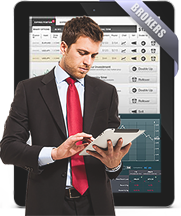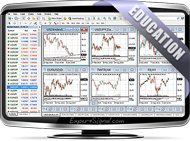An economic indicator is an economic statistic (periodically released) that aims to provide information regarding how an economy or an economic zone has performed during a particular period.
All economic indicators are divided into three categories based on their attributes:
(i) Procyclic Indicator: Moves in the same direction as the economy (for example, GDP)
(ii) Countercyclic Indicator: Moves in the opposite direction to the economy (for example, inflation or unemployment)
(iii) Acyclic Indicator: Has no relation to the economy
All economic indicators are divided into three main categories based on their timing:
(a) Leading Indicator (Before): Leading indicators change before the economy changes and can be used as signaling mechanisms of upcoming macroeconomic conditions. The Consumer Confidence Index (CCI), the Home Sales Report, the performance of Government Bonds, and the Stock Market Index can be considered leading indicators.
(b) Coincident Indicator (At the same time): Changes at the same time as the economy is changing (for example, GDP)
(c) Lagged Indicator (After): Changes a few quarters after the economy changes (for example, unemployment)












